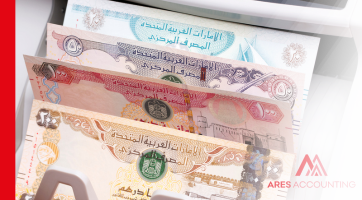In December 2024, the United Arab Emirates announced the introduction of a 15% corporate tax on large multinational enterprises, effective from 2025, a decision that has been under discussion since June 2023. This marks a significant shift in the country’s tax policy, which has long been regarded as a tax haven due to its low tax rates. While the UAE has successfully attracted foreign investments thanks to its favorable tax regime, this new measure aims to enhance tax transparency while meeting international standards, particularly those set by the Ministry of Finance.
The 15% corporate tax will apply to companies with global revenues exceeding 375 million AED (approximately $102 million), aligning the UAE with international standards. This change could have a significant impact on multinationals operating in the country and redefine the UAE’s appeal as a destination for international businesses.
A Necessary Reform to Meet Global Tax Standards
The UAE has decided to implement this tax to comply with new international fiscal requirements, particularly those issued by the Organisation for Economic Co-operation and Development (OECD). Over the past few years, the OECD has advocated for the introduction of a global minimum tax for large corporations to limit tax evasion and ensure a more equitable distribution of tax revenues worldwide.
By adopting a tax on multinational profits, the UAE aligns itself with these international requirements while maintaining its reputation as a tax haven for certain businesses. This reform aims to prevent companies from shifting their profits to jurisdictions with little or no tax rates, a challenge for global tax systems.
Companies Affected by the New Tax
The 15% corporate tax on profits will primarily target large multinationals with annual revenues exceeding 375 million AED, which includes certain companies in the UAE (currently, the corporate tax rate in Dubai is 9%). Companies operating in sectors such as oil, technology, financial services, and consumer goods, among others, will be particularly affected by this corporate tax measure.
However, this reform will not impact all businesses in the UAE. Small and medium-sized enterprises (SMEs) will be exempt from this tax, preserving local market competitiveness and encouraging investments in emerging sectors.
Companies operating in free zones will also continue to benefit from certain tax exemptions for several years, which may help them offset the impact of the new tax.
Impact on Multinationals and Foreign Investors
The introduction of this corporate tax could alter the UAE’s appeal, particularly Dubai, as a destination for international businesses. While some companies might view this change as a barrier to establishing or expanding operations, others may see it as an opportunity to strengthen their presence in a country striving to meet international tax transparency standards.
As a result, foreign investors will need to adjust their strategies for entering the UAE. While the tax may make the environment less attractive for businesses seeking to maximize profits, others may find reassurance in the UAE’s enhanced fiscal stability and compliance.
For investors, the question now arises whether this reform will have a deterrent effect or represent a new opportunity to secure investments in a stable and constantly evolving economic environment.
Why Is the UAE Adopting This Tax Reform?
This tax measure is part of the UAE’s broader strategy to diversify its revenue sources and reduce dependence on oil income while maintaining its status as an attractive destination for businesses. Although the oil sector remains a pillar of the Emirati economy, the government recognizes the need to develop other sectors, including financial services, technology, and tourism.
The introduction of the 15% tax also allows the UAE to strengthen its position as a regional economic leader while demonstrating its readiness to align with global best tax practices. This reform further aims to build confidence among foreign investors, particularly those who prioritize transparent and internationally compliant tax environments, a crucial aspect for businesses in the UAE.
Finally, by implementing this measure, the UAE seeks to attract more medium and large-sized businesses that contribute to the local economy through job creation, innovation, and economic diversification.
A More Modern and Internationally Compliant Tax System
The introduction of the 15% corporate tax on multinationals marks a major evolution in the UAE’s tax policy, which has long been perceived as a tax haven. While this may raise concerns among certain businesses, the measure aims to ensure greater transparency and solidify the UAE’s position as a regional economic hub.
Multinational enterprises will need to adapt their strategies to address this new tax, but the tax advantages for small businesses and companies in free zones should maintain the UAE’s appeal for certain types of investments.
This reform also reflects the UAE’s commitment to adapting to global fiscal trends while preserving a business-friendly environment and ensuring that large enterprises contribute fairly to the country’s economy.
Are You Affected? Don’t hesitate to contact us for more information: support@ares-accounting.com.


